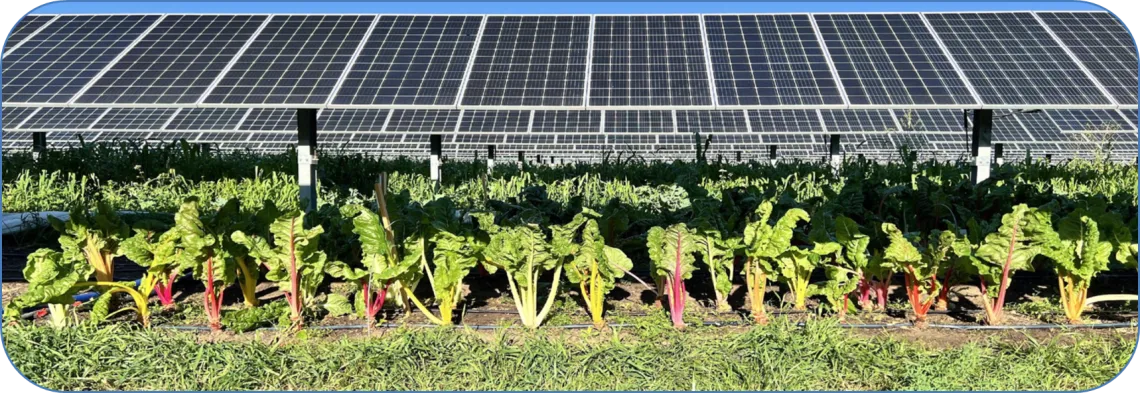A workshop co-convened by the University of Arizona and the Centre National de la Recherche Scientifique (CNRS), France

@Greg Barron-Gafford
When
The University of Arizona and the French National Center for Scientific Research (CNRS) created an International Research Center (IRC) in April 2021. One of the main research themes of the IRC is the Food-Energy-Water nexus in the face of climate change. Agrivoltaics – the combination of agricultural and solar farming – is an exciting topic at the Food-Energy-Water nexus with potential to advance food, energy, and water security around the globe. The grand challenge is, how can we achieve this? We need interdisciplinary global research to push the boundaries of all dimensions of the Agrivoltaics solution, rooted in co-production of knowledge and involving stakeholders from the start – ranging from biomass production and photovoltaic technology to ecological services, social acceptance and integration, economic impact, and public policy and governance. This meeting organized by CNRS and UArizona through the France-Arizona Institute for Global Grand Challenges, gathers a multi-disciplinary team to identify specific research areas where the UArizona-France collaboration can make a difference and lay out the program that will integrate across disciplines and turn agrivoltaics from local experiments to a global solution for sustainability and resilience.
Meeting goals
We are an incredible and diverse group, and we are coming together for these 3 days to meet a series of immediate and longer-term goals. You will notice that throughout our agenda, we are weaving in time to make sure we make progress towards each. We recognize that everyone doesn’t share every priority, but by seeing how our collaborative work will be contextualized both locally and globally, the significance of our efforts in developing agrivoltaics at scale to create a more sustainable food, energy, and water future will be clearer. Specifically, we aim to:
- Identify specific collaborative projects around agrivoltaics at scale that can be supported by the IRC.
- Pinpoint projects were a cohort of 10 PhD students across the UArizona and CNRS can advance the cutting edge and solidify the IRC.
- Utilize specific projects to prioritize grant writing that build innovation within and across the fields of experiential education, biophysical sciences, socio-political sciences, economics engineering, and national security – such as NSF PIRE, NSF Global Centers, and NSF Partnership for Innovation.
- Solidify burgeoning international partnerships with Morocco, Mexico, and Israel towards a shared objective of agrivoltaics at scale.
- Lay the groundwork for creating our International Academy for Resilience.
